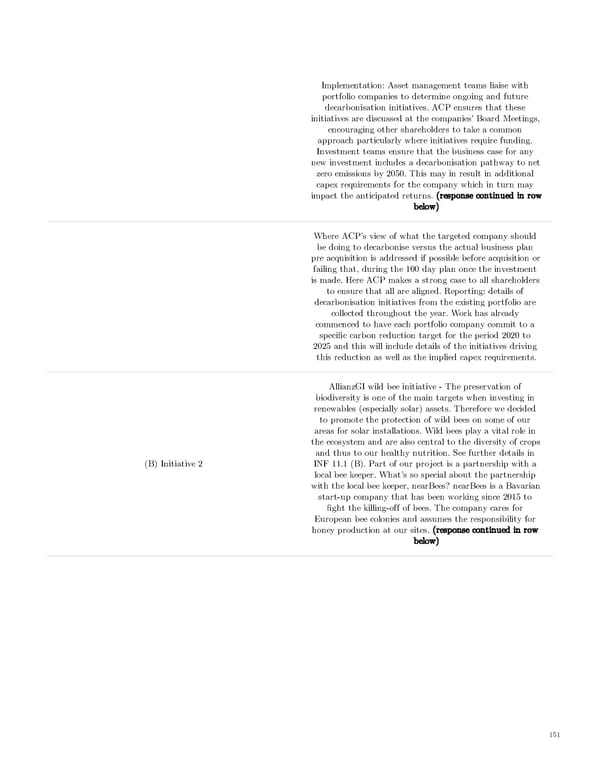Implementation: Asset management teams liaise with portfolio companies to determine ongoing and future decarbonisation initiatives. ACP ensures that these initiatives are discussed at the companies’ Board Meetings, encouraging other shareholders to take a common approach particularly where initiatives require funding. Investment teams ensure that the business case for any new investment includes a decarbonisation pathway to net zero emissions by 2050. This may in result in additional capex requirements for the company which in turn may impact the anticipated returns. (response continued in row below) Where ACP’s view of what the targeted company should be doing to decarbonise versus the actual business plan pre acquisition is addressed if possible before acquisition or failing that, during the 100 day plan once the investment is made. Here ACP makes a strong case to all shareholders to ensure that all are aligned. Reporting: details of decarbonisation initiatives from the existing portfolio are collected throughout the year. Work has already commenced to have each portfolio company commit to a specific carbon reduction target for the period 2020 to 2025 and this will include details of the initiatives driving this reduction as well as the implied capex requirements. AllianzGI wild bee initiative - The preservation of biodiversity is one of the main targets when investing in renewables (especially solar) assets. Therefore we decided to promote the protection of wild bees on some of our areas for solar installations. Wild bees play a vital role in the ecosystem and are also central to the diversity of crops and thus to our healthy nutrition. See further details in (B) Initiative 2 INF 11.1 (B). Part of our project is a partnership with a local bee keeper. What’s so special about the partnership with the local bee keeper, nearBees? nearBees is a Bavarian start-up company that has been working since 2015 to fight the killing-off of bees. The company cares for European bee colonies and assumes the responsibility for honey production at our sites. (response continued in row below) 151
 AGI Public RI Report Page 150 Page 152
AGI Public RI Report Page 150 Page 152